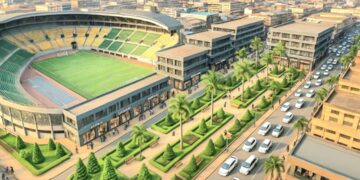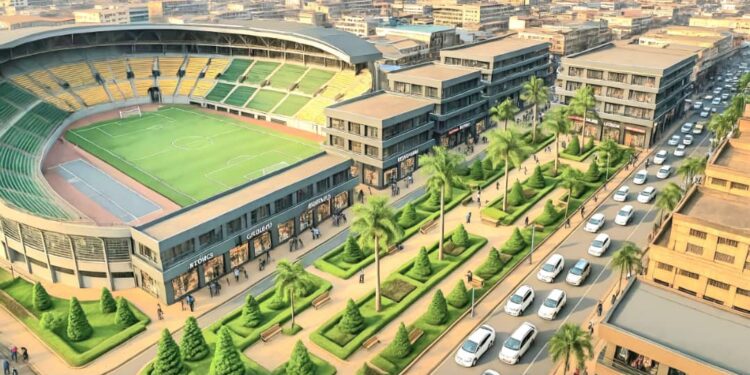The long-troubled Nakivubo Channel — for decades Kampala’s most pressing urban drainage challenge — is undergoing a dramatic transformation through a partnership between businessman Dr. Hamis Kiggundu (Ham), the Kampala Capital City Authority (KCCA), and guidance from CAF and CHAN inspection teams.
Cutting through the heart of Kampala’s central business district, the channel has long been associated with flooding, pollution, and safety risks. Now, it is being rebuilt into a modern, eco-friendly corridor designed to both protect the city from floods and redefine its urban landscape as Uganda prepares to host the Africa Cup of Nations (AFCON) in 2027.
During recent visits, CAF inspectors praised the progress and stressed that aligning the project with international standards is vital to Kampala’s readiness for the continent’s biggest football tournament. Their recommendations have since guided design and implementation to meet strict environmental and infrastructural benchmarks.
KCCA has endorsed the redevelopment, providing technical oversight and integrating it into the city’s broader drainage masterplan.

“The collaboration between public institutions and private investors such as Hamis Kiggundu is exactly what Kampala needs to solve long-standing urban challenges,” said a KCCA official. “This is not only about AFCON — it is about creating a permanent legacy of safety, beauty, and functionality for city residents.”
Dr. Kiggundu, who is financing the project, described it as both a patriotic duty and a community-driven investment. “Nakivubo Channel has caused floods, insecurity, and loss of life for far too long. This redevelopment is about delivering a clean, safe, and modern drainage system for Kampala. It’s our responsibility to the people — and a statement that Uganda is ready for the future,” he said.
When complete, the channel will feature underground flood-control chambers, solid waste filtration systems, pedestrian walkways, and landscaped green spaces. Rather than a scar across the city, it will stand as a model of smart urban design, boosting business confidence and tourism appeal.
The initiative has been widely hailed as an example of self-driven development, showcasing how local investment can achieve results without reliance on foreign aid.











